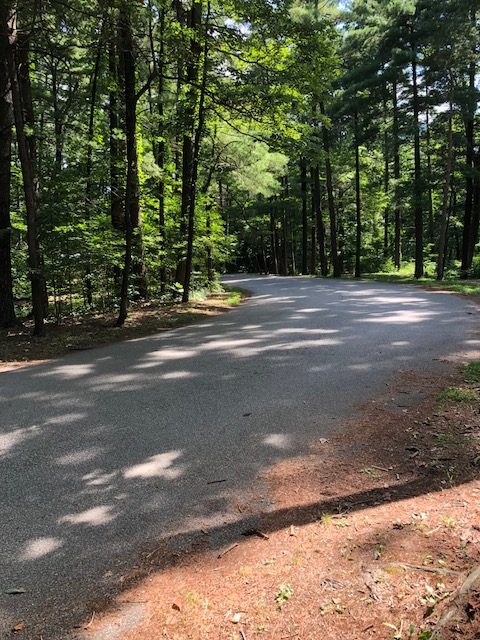by Donna Poole
We have many non-negotiable June deadlines.
Time is a precious commodity right now, so John sighed when he realized we were out of a necessary medication and had to make a trip to town. He needed every one of his June minutes to accomplish his tasks, and an extra trip to town wasn’t part of the plan.
I knew I wasn’t going to see much of John this month, so I closed my computer. “I’m riding along with you.”
“Do you have time?”
“No, but I’m going anyway.”
On the way to town, I tried to sing, “Precious and few are the moments we two can share.”
I say “tried” because, as usual, the melody lost itself between my heart and my mouth.
We decided we’d enjoy what little time we had together and make the ride back home a mini date, so we stopped at Arby’s to get a favorite drink, a value size Jamocha Shake.
What! Four cars ahead of us at the drive-through? We definitely didn’t have time for this.
“Let’s skip it,” I said to John.
We hesitated, almost left, but stayed. The wait was only a few minutes, but the looming deadlines made it seem longer.
There always seems to be a reason to rush, doesn’t there? At those times, even fast food doesn’t seem fast enough.
Kimmee, our daughter, and I were sitting in the parking lot at church today, listening to John preach over the radio, when he mentioned restaurant food. He was talking about the Apostle Paul being imprisoned in Rome, chained to two guards, in his own rented house.
“There he was in Rome, Italy,” John joked, “and he couldn’t even go out to a restaurant for spaghetti.”
I laughed then remarked to Kimmee I didn’t think there were restaurants in Italy in Paul’s day.
“Mom,” Kimmee said. “They discovered food stalls in the ruins of Pompeii, and Pompeii was destroyed after Paul died. They had food stalls in Rome too!” She texted me some links to research.
I found out the Pompeii food stalls didn’t offer Jamocha shakes, but duck, goat, pig, fish, and snails were on the menu.
I suppose you could call those food stalls the first fast-food restaurants.
Did the people in line at a food stall in Pompeii sigh about the four people in line ahead of them? I wonder if people then forget as we do now that life is short and sweet? One midsummer day, August 24, 79, A.D., Mount Vesuvius blew its top and buried the city under thirteen to twenty feet of volcanic ash and pumice. Buildings, skeletons, and artifacts lay intact under that ash until archaeologists discovered the city in the mid-1800s. In recent excavations, archeologists found the remains of two people in a food stall. Had they been enjoying the August morning, or had the pressure of preparing food made them in too much of a hurry to notice the day?
I wonder if mankind has been in a hurry ever since God banished Adam and Eve from the Garden of Eden. That reminds me of a joke Tom told me today.
Despite his own physical pain, Tom loves to make people laugh. He told me the problem in the Garden of Eden wasn’t the apple in the tree, it was the “pair” on the ground!
Come to think of it, Eve was in a hurry when she grabbed that forbidden fruit. Satan had promised her it would fast track her into more knowledge.
Eve was just plain in too much of a rush. If only she’d waited to talk to God, or Adam, or even to have a chat with herself, the outcome might have been different.
Slow down, Eve; “you move too fast. You got to make the morning last.”
But Eve didn’t slow down; the morning didn’t last, and midnight came all too soon.
I wonder how many mistakes I’ve made when I’ve been in too much of a hurry. What precious things have I sacrificed? I do know that being too busy makes me forget to take the long look. I don’t remember two important things: the shortness of time and the length of eternity.
Yes, we must keep moving; some deadlines are non-negotiable. Life itself has an expiration date. But if we’re too busy for each other, too busy to worship, too busy for God, we’re too busy. If we feel frustrated by four cars ahead of us in a fast-food line; it’s time to slow down.
John and I did slow down…for a few minutes. We drove home from town a little slower. We noticed the wildflowers and remarked about the unusually beautiful day, sunny, and warm. The humidity hit a desert like low that afternoon, four percent. Was this really even Michigan? We enjoyed being together, and we enjoyed the Jamocha shakes.
Yes, make your deadlines. But slow down a bit now and then. Take a backroad.
Next time you’re in too much of a hurry, remember Eve. And ask yourself this: who was the first one in a big rush to leave the Last Supper? Talk about bad decisions!















